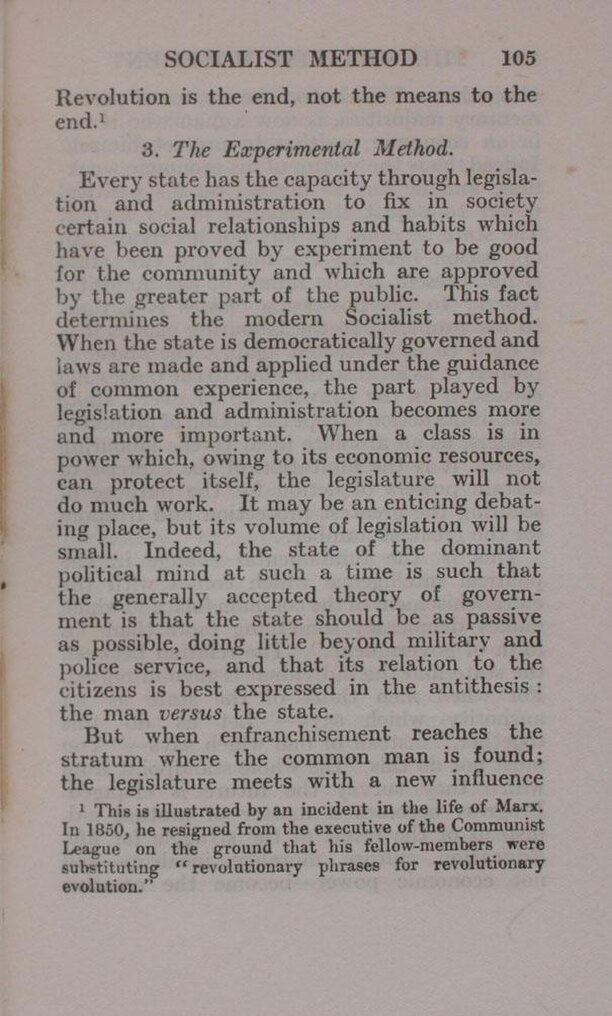Revolution is the end, not the means to the end.[1]
3. The Experimental Method.
Every state has the capacity through legislation and administration to fix in society certain social relationships and habits which have been proved by experiment to be good for the community and which are approved by the greater part of the public. This fact determines the modern Socialist method. When the state is democratically governed and laws are made and applied under the guidance of common experience, the part played by legislation and administration becomes more and more important. When a class is in power which, owing to its economic resources, can protect itself, the legislature will not do much work. It may be an enticing debating place, but its volume of legislation will be small. Indeed, the state of the dominant political mind at such a time is such that the generally accepted theory of government is that the state should be as passive as possible, doing little beyond military and police service, and that its relation to the citizens is best expressed in the antithesis: the man versus the state.
But when enfranchisement reaches the stratum where the common man is found; the legislature meets with a new influence
- ↑ This is illustrated by an incident in the life of Marx, In 1850, he resigned from the executive of the Communist League on the ground that his fellow-members were substituting "revolutionary phrases for revolutionary evolution."
